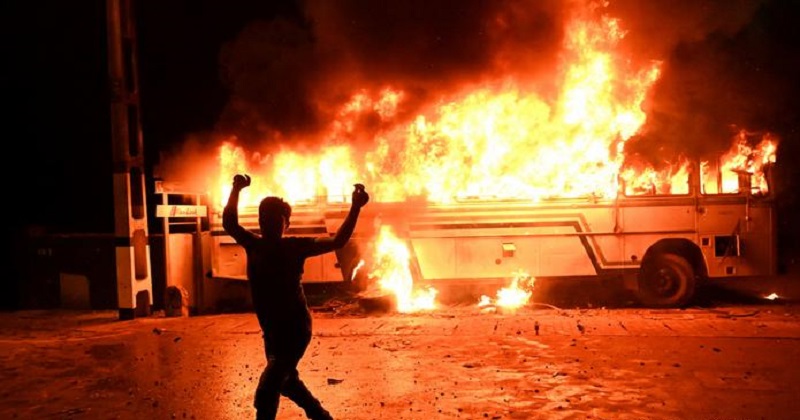
Sri Lankan President Gotabaya Rajapaksa has proclaimed a state of emergency for the second time in two months, as protests against the governing class over inflation and the economic crisis continue. The president’s communications division reports that the emergency will come into effect at midnight on May 6.
According to reports, the president invoked the harsh rules after trade unions launched a statewide protest on Friday demanding his resignation due to the deterioration of the economy. The decision comes in the aftermath of widespread rallies around the island calling for the resignation of the president and the whole administration for failing to address the island’s grave economic predicament.
Earlier in the day, hundreds of student activists from the Inter-University Students Federation blocked the major entry route to the parliament complex and protested for the last 24 hours. To disperse the demonstrators, the police used tear gas shells and water cannons.
President Rajapaksa and his elder brother, Prime Minister Mahinda Rajapaksa, have refused to resign in the face of rising pressure. They won a major election in Parliament on Thursday, when their nominee, Ranjith S., easily won the fight for the position of Deputy Speaker. Ranjith, however, quit 24 hours after being elected.
In his resignation letter to the president, he stated, ‘Personally, I considered that I was put forth as the candidate representing both the opposition and the administration. However, the opposition fielded a candidate at the last minute and chose a secret ballot. Despite my victory, the public now regards me as a traitor and an adversary. As someone who knows the people’s situation and current problems, I would want to join with them and resign.’
On April 1, the Rajapaksa administration proclaimed a state of emergency to maintain law and order after thousands of people took to the streets to protest the government. However, the president ultimately rescinded the decision on April 5, under criticism from his own cabinet officials and opposition groups. The island nation is experiencing an economic disaster of a magnitude not witnessed since the country’s financial crisis in 1948.

Post Your Comments